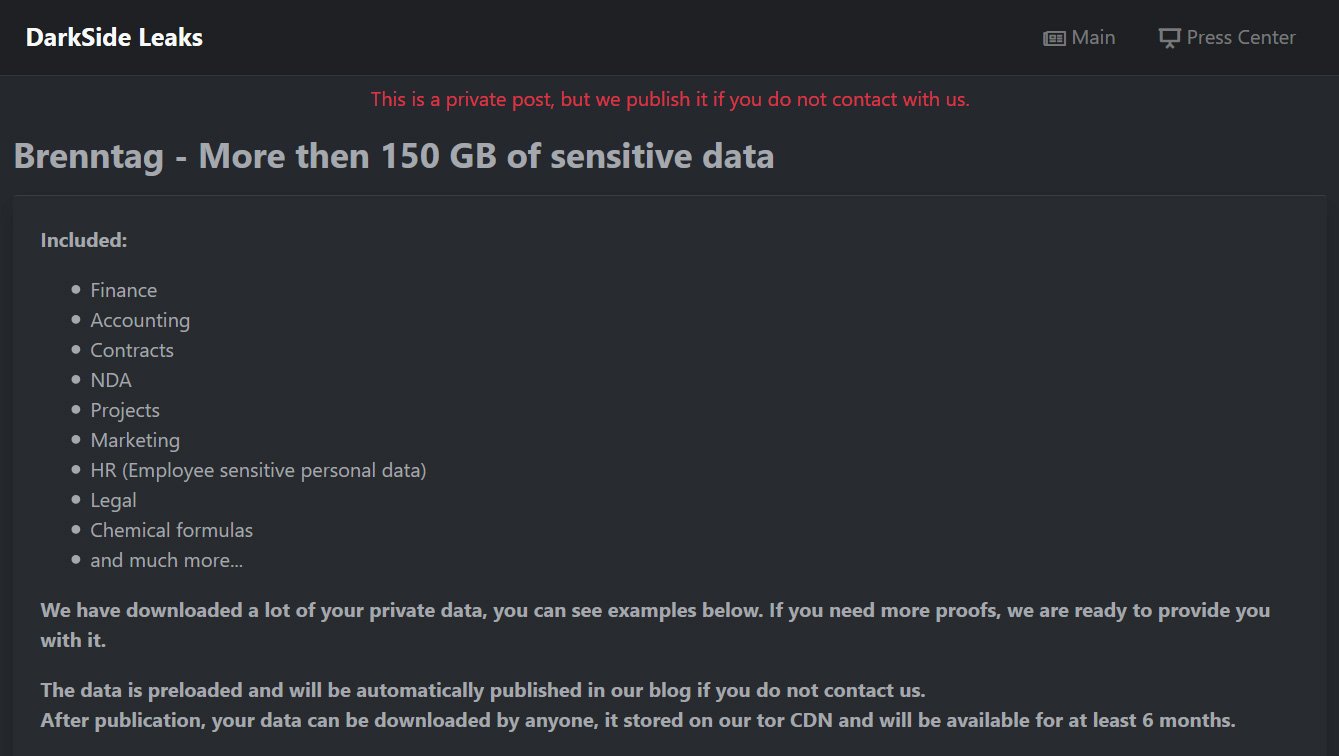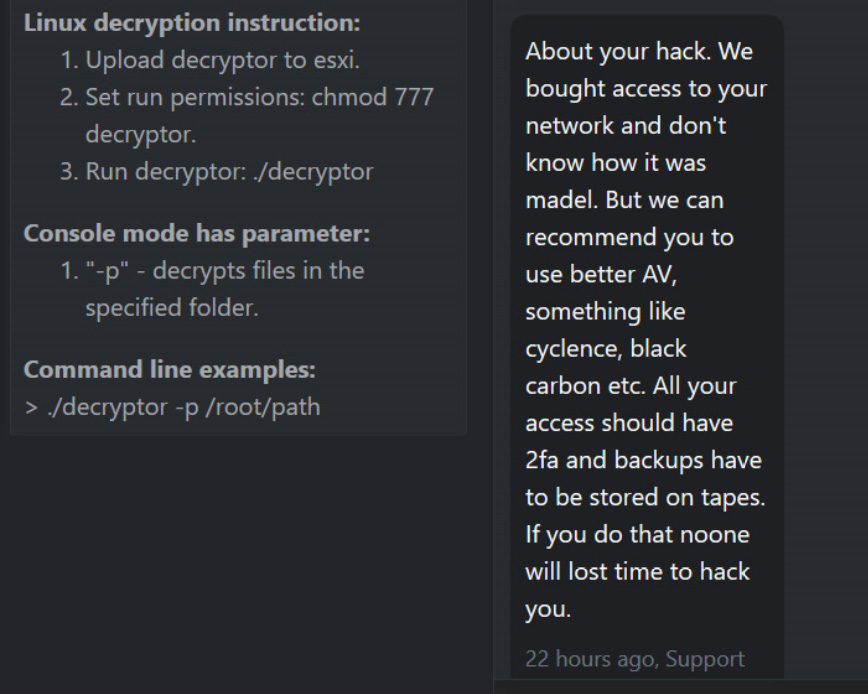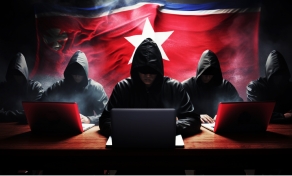
Chemical distribution company Brenntag paid a $4.4 million ransom in Bitcoin to the DarkSide ransomware gang to receive a decryptor for encrypted files and prevent the threat actors from publicly leaking stolen data.
Brenntag is a world-leading chemical distribution company headquartered in Germany but with over 17,000 employees worldwide at over 670 sites.
According to the ICS Top 100 Chemical Distributors report, Brenntag is the second largest in sales for North America.
Brenntag confirms cyberattack
At the beginning of May, Brenntag suffered a ransomware attack that targeted their North America division. As part of this attack, the threat actors encrypted devices on the network and stole unencrypted files.
From the information shared with BleepingComputer by an anonymous source, the DarkSide ransomware group claimed to have stolen 150GB of data during their attack.
To prove their claims, the ransomware gang created a private data leak page containing a description of the types of data that were stolen and screenshots of some of the files.

DarkSide initially demanded a 133.65 Bitcoin ransom, valued at approximately $7.5 million at the time. However, after negotiations, BleepingComputer was told that the ransom demand was decreased to $4.4 million, which was paid two days ago.
From the bitcoin address shared with BleepingComputer, we confirmed that Brenntag sent the ransom to the attackers on May 11th.
Today, Brenntag shared a statement with BleepingComputer confirming that they suffered a security incident but did not outright state it was a ransomware attack.
"Brenntag North America is currently working to resolve a limited information security incident," Brenntag told BleepingComputer.
"As soon as we learned of this incident, we disconnected affected systems from the network to contain the threat."
"In addition, third-party cybersecurity and forensic experts were immediately engaged to help investigate. We also informed law enforcement of this incident."
Gained access through stolen credentials
DarkSide is a Ransomware-as-a-Service (RaaS) operation, which is when the ransomware developers partner with third-party affiliates, or hackers, who are responsible for gaining access to a network and encrypting devices.
As part of this arrangement, the core DarkSide team earns 20-30% of a ransom payment, and the rest goes to the affiliate who conducted the attack.
One of the conditions for most ransomware negotiations is that the affiliate discloses how they gained access to a victim's network. This could come in the form of a multi-page security audit report or simply a simple paragraph in the Tor chat screen explaining how they gained access.
In this particular case, the DarkSide affiliate claims to have gotten access to the network after purchasing stolen credentials. However, the DarkSide affiliate does not know how the credentials were originally obtained.

Ransomware gangs and other threat actors commonly use dark web marketplace to purchase stolen credentials, especially those for Remote Desktop credentials.
Last month, BleepingComputer reported how one of the largest RDP marketplaces, UAS, suffered a breach showing that over the past three years they had access to 1.3 million stolen credentials.
While this was an expensive lesson, and unfortunately all-too-common, the attack illustrates the importance of enforcing multi-factor authentication for all logins on a network and putting all Remote Desktop servers behind a VPN.
If MFA was enabled for account logins, it is unlikely that the DarkSide affiliate would have gained access to the network.



Post a Comment Community Rules
You need to login in order to post a comment
Not a member yet? Register Now